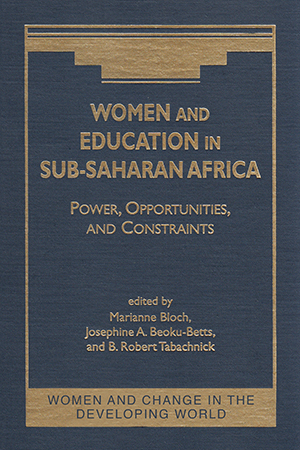
- 1998/320 pages
- Women and Change in the Developing World
Women and Education in Sub-Saharan Africa:
Power, Opportunities, and Constraints
Hardcover: $40.00
ISBN: 978-1-55587-704-0
Paperback: $26.50
ISBN: 978-1-58826-290-5
This volume focuses on gender and education in sub-Saharan Africa, considering in particular the impact formal and nonformal education have had on African women.
A variety of country studies illustrate current theoretical debates in three key areas: postcolonial influences on the forms of education that are privileged; human-capital, socialist-feminist, and post-modern perspectives on the creation of "female education"; and approaches to understanding the gender-related processes and effects of differing forms of schooling. The authors provide both historical and cultural context, highlighting the complex interplay of social, economic, and political forces at work.
A variety of country studies illustrate current theoretical debates in three key areas: postcolonial influences on the forms of education that are privileged; human-capital, socialist-feminist, and post-modern perspectives on the creation of "female education"; and approaches to understanding the gender-related processes and effects of differing forms of schooling. The authors provide both historical and cultural context, highlighting the complex interplay of social, economic, and political forces at work.







